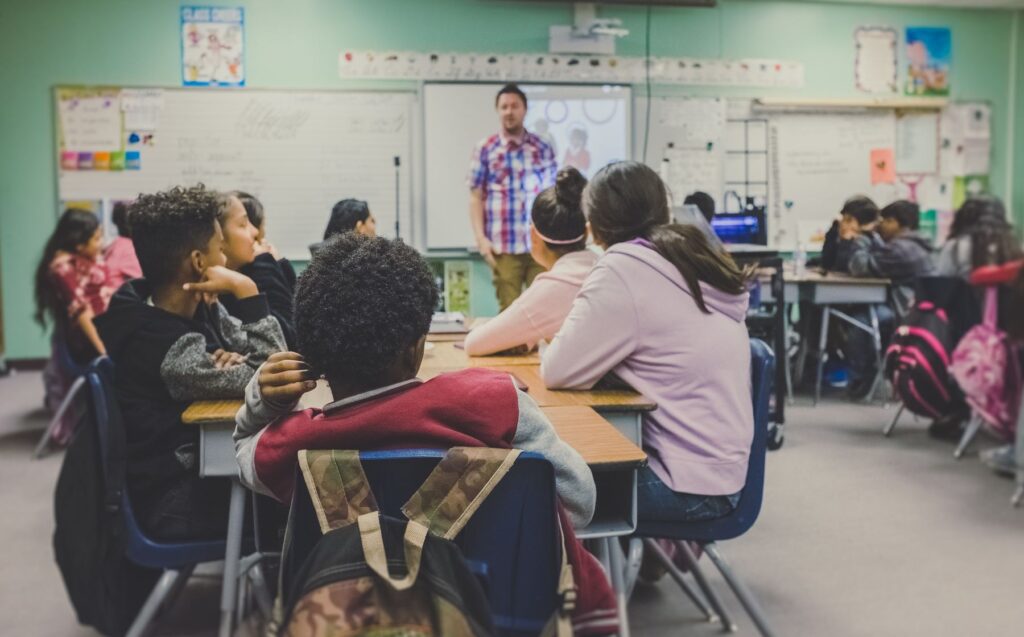
Used part way through a learning sequence, multiple-choice questions are an efficient and effective way of gauging understanding and checking for misconceptions before moving on. What does it mean? The ‘hinge’ is a moment of diagnosis, the point when a teacher must decide whether a key concept has been understood well enough to move on […]

Seeking regular opportunities to formatively assess students’ understanding and using this to inform what happens next in the lesson. What does it mean? Teachers need to know exactly where students are in their learning at all times (as far as that is possible) to best support mastery of a skill or concept. There are two […]

The cognitive revolution and the increased focus on evidence-based practice that has swept through the teaching profession in recent years has undoubtedly brought with it many positive outcomes. Yet in the rush to embrace the modern, it would be wise to remember that many of these new ideas have very old roots, and rather than […]

The breakthrough in my thinking about the curriculum came when I tried to answer the question that I now think every generation should ask: ‘what are schools for?’ (Young, 2011). I was deeply dissatisfied with most of the answers that my discipline, the sociology of education, gave; they were almost invariably trapped by one kind […]

The Westminster School, Sandwell, is a specialist provision for pupils with moderate learning difficulties (MLD) aged 7-19. Over the last few years, the school has started to see a change in its cohort with an increased number of pupils with severe learning difficulties (SLD) and complex learning difficulties and disabilities (CLDD). This group now represents […]

Title: Outdoor learning spaces: The case of forest school Published in: Area (2018). Vol. 50(2), pp. 222–231 Author: Frances Harris, Department of Biological and Environmental Sciences, University of Hertfordshire What did the research explore? The research builds on a growing body of literature that looks at the effectiveness of forest school in the United Kingdom […]

An instant formative assessment tool allowing teachers to engage with the thinking, understanding and progress of all students at once. What does it mean? Coupled with erasable pens, mini whiteboards are simple and effective learning tools. They allow students to record and share their thinking, and teachers to instantly check for understanding. They are most […]

Memory is strengthened by retrieval practice. What does it mean? According to psychologists such as Robert and Elizabeth Bjork and Yana Weinstein (one of the Learning Scientists), our capacity to remember things in the long-term is strengthened by practising the process of retrieving information from our long-term memory into our working memory. The more we […]

Headley Park Primary School is a two-form entry community primary school, with 468 pupils including a 52-place nursery. It’s located in a little-known area of Bristol with a static population of largely white working-class families. Despite relatively low income levels, deprivation indicators (and Pupil Premium funding) are low (11%) as only a small percentage rely […]

Learning is most effective when cognitive load is optimised. What does it mean? Our working memory is limited in capacity. This has two main consequences: The limit creates a form of bottleneck that restricts the flow of knowledge into our long-term memory. We need to break down new learning into small chunks that can be […]

We remember what we think about. – Willingham What does it mean? It is surprisingly easy to forget things. We couldn’t cope with the sheer volume of sensory or cognitive information we encounter so we prioritise remembering things we have thought about because there’s a good chance we might need that information again. This does […]

The optimal success rate for learning is high – possibly 80% – but not 100%. What does it mean? Successful learning stems from early success and applying effort to effective strategies. This requires a degree of motivation, which is supported by having a growth mindset, as opposed to a fixed mindset. This helps students to […]

Learning builds in schemas; knowledge allows you to accrue more knowledge. What does it mean? As we learn, we arrange information into sets of ideas (schemas) that help us make sense of the world. This makes future recall easier because whole sets of ideas can be recalled together. This is why knowledge builds on knowledge. […]

Teaching is a two-way interactive process; teachers and students need feedback from each other about how the learning process is going. What does it mean? This is one part of ‘formative assessment’. Classroom research indicates that effective teachers ask more questions to more students, in a more in-depth way, checking for understanding across all students. […]

Direct instruction is important with novice learners, especially those with weak prior knowledge and low confidence. What does it mean? Research from Clark, Kirschner and Sweller suggests that direct forms of instruction are much more effective than approaches that rely on students finding things out for themselves and that novice learners cannot simply copy the […]

Learning is about committing knowledge to long-term memory, not immediate performance. What does it mean? There are different technical ideas about what ‘learning’ means, but we would probably all agree that even if a student can give a good answer or demonstrate a skill today, that doesn’t mean they have learned it. Without strategies […]

Cooperative learning or group work can be extremely effective, but it needs the right conditions. What does it mean? It is vital to distinguish between structured team learning and informal group learning. Structured team learning – or cooperative learning – has yielded strong results in trials when there are two conditions in place: Group goals. […]

An estimated 40% of children aged four to 16 years old across England and Wales have sleep issues As a primary school teacher, morning conversations with parents often revolve around how well each child slept the night before. Comments such as ‘he has been up since 2am’ and ‘she is really tired today – good […]

Girls very often enjoy science, but don’t see it as ‘for them’. Professor Becky Francis from the Institute of Education talks science, disadvantage and grouping.

Title: Children as agents of social and community change: Enhancing youth empowerment through participation in a school-based social activism project Published: Education, Citizenship and Social Justice (2018) Vol. 13(1), pp. 3– 18 Authors: Susan Torres-Harding, Roosevelt University Ashley Baber, Loyola University Chicago Julie Hilvers, Roosevelt University Nakisha Hobbs, Village Leadership Academy Michael Maly, Roosevelt University What […]




















